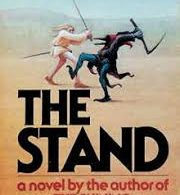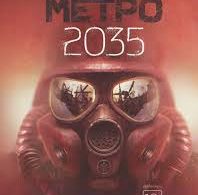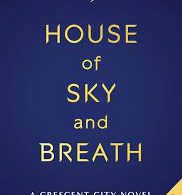Category - Science Fictional
The Science Fiction genre is often called sci-fi in short form. It explores futuristic and imaginative concepts that are grounded in speculative technology and scientific principles. A detailed review of this genre is:
Science Fiction Novel Details And Origin:
The roots of the science fiction genre are traced in early literature but it started to take its place as a different genre in the 19th century. “Frankenstein” (1818) by Mary Shelley is considered one of the early true science fiction books that is a blend of speculative and horror elements.
This genre expanded thrust with the works of Jules Verne and H.G. Wells who explored themes of advanced technology, time travel, and space travel.
Key Elements:
- Futuristic and Speculative Concepts: Extraterrestrial life, parallel universes, time travel, space exploration, and advanced technology are the diverse themes of the sci-fi genre.
- Scientific Principles: It often unites scientific principles and theories to create credible scenarios.
- Social Commentary: Mostly sci-fi works use futuristic settings to discuss ethical, political, and social issues.
- World-Building: Sci-fi authors create detailed and immersive worlds, complete with their own rules, technologies, and societies.
- Exploration of the Unknown: This genre explores future interests with the depth of the human mind.
Subgenres:
There is a wide range of subgenres of the Science Fiction Audiobooks genre that offer unique storylines to its readers such as:
- Hard Science Fiction: It focuses on technical details and scientific accuracy.
- Soft Science Fiction: It emphasizes human behavior, social sciences, and psychology.
- Space Opera: Often focused on conflict and heroism, this genre features adventures in the space.
- Time Travel: It explores the paradox and consequences of the journey of characters that travel through time.
- Alternate History: Changes in the history according to the changes of events.
Notable Works and Authors:
“Robot” and “Foundation” series by Isaac Asimov, and explore themes of future humanity and artificial intelligence.
“2001: A Space Odyssey” by Arthur C. Clarke explores potential human achievement in space exploration.
“Do Androids Dream of Electric Sheep?” by Philip K. Dick.
The “Hainish Cycle” series is by Ursula K. Le Guin which explores the themes of gender, anthropology, and sociology.
“Parable” and “Kindred” series by Octavia Butler address the issues of power, gender, and race. She is also a pioneer of Afrofuturism.
Impact and Popularity:
The science fiction audiobook genre has a reflective impact on popular culture, film, and literature. It inspires uncountable technological novelties and provides a platform to explore ethical and complex philosophical questions. It has the ability to explore unknown facts and imagine the future to attract and engage its worldwide audience.
Conclusion:
Science fiction in short sci-fi is a thought-provoking and versatile genre that explores imaginative possibilities of the future according to the human mind. There are a lot of stories to discover in this genre whether they are the social observation of dystopian tales or the technical accuracy of hard sci-fi. Overall, the science fiction genre has a lot of elements to explore the world.










